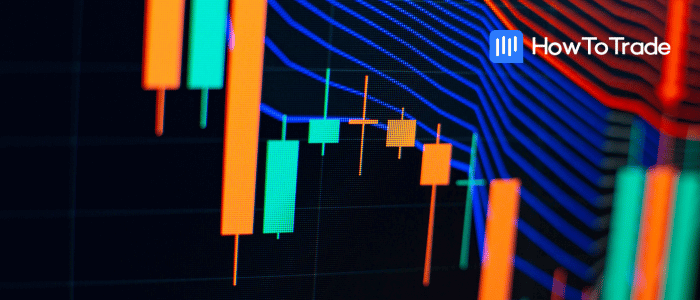Frankfurt Stock Market Closes Lower: DAX Below 24,000 Points

Table of Contents
Factors Contributing to the DAX Decline
Several intertwined factors have contributed to the DAX's fall below 24,000 points. Understanding these complexities is crucial for navigating the current market volatility.
Global Economic Uncertainty
The global economic landscape is currently fraught with uncertainty, significantly impacting investor confidence and the DAX's performance.
- Inflation and Rising Interest Rates: Persistent high inflation across the globe has forced central banks, including the European Central Bank (ECB), to aggressively raise interest rates. This increases borrowing costs for businesses, potentially slowing economic growth and impacting corporate profitability.
- Geopolitical Tensions: The ongoing war in Ukraine continues to fuel energy price volatility and supply chain disruptions, impacting various sectors within the German economy. Strained US-China relations also add to global uncertainty.
- Energy Crisis: The energy crisis in Europe, exacerbated by the war in Ukraine, is placing immense pressure on German businesses, particularly energy-intensive industries. This uncertainty translates directly to investor apprehension.
Weak Corporate Earnings
Disappointing earnings reports from several major German companies have further dampened investor sentiment and contributed to the DAX's decline.
- Automotive Sector Weakness: Several prominent automotive companies reported weaker-than-expected earnings, citing supply chain disruptions and reduced consumer demand. This sector is a significant component of the DAX, so its underperformance heavily weighs on the index.
- Decline in Consumer Spending: Decreased consumer confidence and spending due to inflation are impacting companies across various sectors, resulting in lower-than-anticipated profits and weaker stock prices.
- Reduced Profit Margins: Many companies are facing squeezed profit margins due to increasing input costs and wage pressures.
Eurozone Economic Slowdown
Concerns about a potential recession in the Eurozone are casting a long shadow over the German economy and the DAX.
- Falling GDP Growth: Recent economic indicators point to slowing GDP growth across the Eurozone, raising concerns about a potential contraction.
- High Inflation and Unemployment: Persistent high inflation combined with rising unemployment levels further fuels economic uncertainty and dampens investor optimism.
- Impact on German Exports: A weakening Eurozone economy directly impacts German exports, a crucial driver of the German economy.
Investor Sentiment and Volatility
Negative news and economic uncertainty have fueled increased market volatility and negatively impacted investor sentiment.
- Increased Trading Volume: The recent decline has been accompanied by increased trading volume, indicating heightened investor activity and a potential rush to sell.
- Negative Sentiment Indicators: Various market sentiment indicators, such as the VIX (volatility index), have risen sharply, reflecting increased anxiety among investors.
- Speculative Trading: Speculation and short-selling likely amplified the downward pressure on the DAX.
Impact on Key Sectors
The decline in the DAX has significantly impacted various sectors within the German economy.
Automotive Industry
The German automotive industry, a major component of the DAX, has been particularly hard hit.
- Supply Chain Disruptions: Continued supply chain issues, including semiconductor shortages, are hampering production and impacting profitability.
- Transition to Electric Vehicles: The ongoing shift towards electric vehicles is requiring significant investments and adjustments, impacting short-term profitability for some companies.
Technology Sector
The technology sector, while globally impacted by a slowdown, has also experienced a decline on the DAX.
- Global Tech Slowdown: A broader global slowdown in the technology sector is influencing the performance of German tech companies listed on the DAX.
- Increased Competition: Increased competition in the global technology market is pressuring profit margins and impacting stock prices.
Financial Services
Banks and insurance companies listed on the DAX have also been affected by the current economic climate.
- Rising Interest Rates: Rising interest rates impact lending and profitability within the financial services sector.
- Economic Uncertainty: Increased economic uncertainty leads to a more cautious approach by investors, impacting the performance of financial institutions.
Potential Future Outlook for the DAX
Predicting the future performance of the DAX is challenging, but considering various scenarios is essential.
Analyst Predictions
Financial analysts offer varied predictions regarding the DAX's future performance, ranging from cautious optimism to more pessimistic outlooks. Some anticipate a gradual recovery, while others foresee further declines depending on macroeconomic factors and geopolitical developments.
Possible Scenarios
Several scenarios are possible. A positive scenario could involve a resolution of geopolitical tensions, easing inflation, and a stronger-than-expected Eurozone recovery, potentially leading to a rebound in the DAX. Conversely, a negative scenario might include a prolonged recession in the Eurozone, escalating geopolitical risks, and persistent inflation, potentially resulting in further declines.
Investment Strategies
Given the current market uncertainty, investors should adopt a cautious approach. Diversification and a long-term investment strategy are crucial. Disclaimer: This information is for general knowledge and informational purposes only, and does not constitute financial advice.
Conclusion: DAX's Dip Below 24,000 – What's Next?
The DAX's fall below 24,000 points reflects a confluence of global and regional factors, including global economic uncertainty, weak corporate earnings, concerns about a Eurozone slowdown, and deteriorating investor sentiment. The impact is being felt across various sectors, particularly the automotive and technology industries. While the future outlook for the DAX remains uncertain, careful monitoring of economic indicators and geopolitical developments is crucial. To stay informed about the Frankfurt Stock Market and the DAX's performance, subscribe to our newsletter, follow reputable financial news sources, and utilize reliable financial tools for tracking DAX performance and German stock market analysis. Stay informed to navigate the evolving situation in the Frankfurt Stock Exchange and understand the dynamics of DAX performance.

Featured Posts
-
 Zimmermann Showcases Amira Al Zuhair At Paris Fashion Week
May 25, 2025
Zimmermann Showcases Amira Al Zuhair At Paris Fashion Week
May 25, 2025 -
 Accenture Announces 50 000 Promotions Following Six Month Wait
May 25, 2025
Accenture Announces 50 000 Promotions Following Six Month Wait
May 25, 2025 -
 Onrust Op De Amerikaanse Beurs De Aex Behoudt Positieve Koers
May 25, 2025
Onrust Op De Amerikaanse Beurs De Aex Behoudt Positieve Koers
May 25, 2025 -
 Hells Angels Their Impact On Society And Culture
May 25, 2025
Hells Angels Their Impact On Society And Culture
May 25, 2025 -
 A Realistic Look At Escaping To The Country Challenges And Rewards
May 25, 2025
A Realistic Look At Escaping To The Country Challenges And Rewards
May 25, 2025
